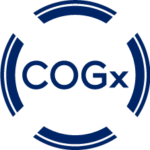Skills for Learning: Processing Speed
Skills for Learning:
Processing Speed

What is Processing Speed?
Processing speed refers to our ability to perceive, integrate, and respond to visual, auditory, or motor information. It is the pace at which you take information, make sense of it, and begin to respond; it is a reflection of mental efficiency. Input refers to the amount of time it takes a person to understand and combine information. Output refers to the amount of time it takes a person to respond, which might include reacting to a situation or making a decision. Integration is the stage between input and output where information is being interpreted for learning.
Our Solutions
1. COGx Professional Development - Empowering Educators to Teach & Personalize for Processing Speed
Learn how to discern and tailor your teaching to accommodate variations in processing speeds within your classroom.
What you will learn:
The critical role processing speed plays in learning. Common symptoms of slow and fast processing speed on learning. Teaching methods and modifications that support the variety of processing speeds that exist in any given classroom. The relationship between processing speed and emotional wellbeing.
How you will learn:
1 Video Micro Lessons from experts 2 Group Discussion Invitation 1 Visual and Graphic Organizer Ongoing self-checks and application of concepts Direct access to your Program Leader Opportunities to give and receive feedback from your peers Teaching practice reflection Estimated time to complete: 1.5 hours
2. COGx Student Program - Empowering Students to Become Sophisticated Learners

The COGx program for students, Becoming a Sophisticated Learner, provides students with the foundational skills necessary to develop 21st century skills. Students master evidence-based techniques and strategies to process information effectively and for building reliable prior knowledge, which is a prerequisite for critical thinking, creative thinking and effective communication. Furthermore, students learn how to monitor, organize, self-regulate and adjust their learning (metacognition, executive function). Students are equipped to apply what they learn to their classes and studies and are as such prepared to succeed in school and beyond.




